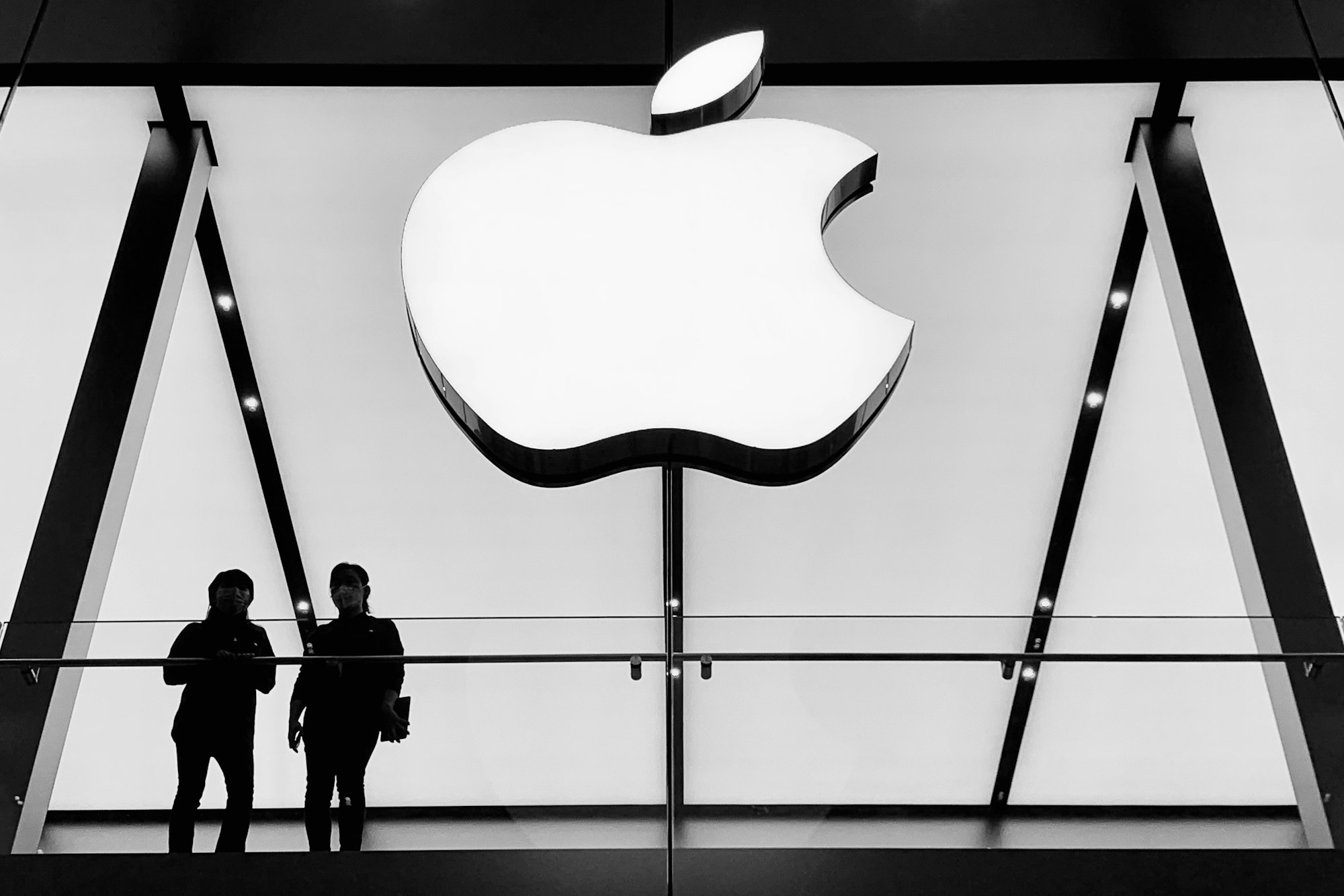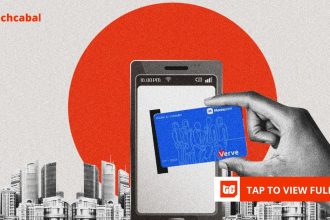For over a decade, Apple has ruled the App Store like a digital monarchy, gatekeeping everything that enters the iPhone ecosystem. With strict rules and steep tolls, this exclusive software gateway has been immensely lucrative for the Cupertino giant.
The App Store gives mobile developers access to more than a billion iPhone users worldwide. Last year alone, consumers spent $64 billion on the platform, of which Apple took between 15% and 30%. It’s no surprise that Apple has fought fiercely to keep its walled garden impenetrable.
But the bricks of those walls are starting to chip away. Apple is slowly, painstakingly losing its grip over the marketplace it created, locked in a long global battle over its right to dictate terms to developers. Regulators across the world are now cracking down, accusing Apple of antitrust violations.
And in Europe, the first major breach has appeared, heralded by the launch of AltStore PAL, the EU’s first official third-party iOS app store. Now, the alternative marketplace is preparing to expand to more countries, further challenging Apple’s app store ecosystem
The First Crack in the Walled Garden
AltStore PAL’s arrival as an alternate marketplace on the App Store was a direct result of the European Union’s Digital Markets Act (DMA), a sweeping legislative hammer designed to break the dominance of “gatekeeper” platforms like Apple, including the USB-C enforcement, the ability to change Siri and Photos app, from the default apps and many more.
Apple appeals EU’s €500M fine over App Store rule
The company is arguing that the fine is ‘unprecedented’ and claims the EU is overstepping its authority.
For years, AltStore, the brainchild of developer Riley Testut (creator of the video game emulator Delta) and his business partner Shane Gill, existed as a “hacky” workaround. It relied on a companion app called AltServer to trick the iPhone into thinking the user was the app’s developer. Thanks to the DMA, that workaround has now become legitimate, securing a fully Apple-notarized launch.
Unlike Apple’s tightly controlled store, AltStore PAL uses a decentralized self-publishing model. Developers host their own apps, while users can add new “sources” to discover software outside the official catalog. There’s no opaque review process or arbitrary rejection by Apple, just developers and their audiences.
This freedom presents its own risks, removing the layer of security Apple’s ecosystem has long prided itself on. But that responsibility now falls to users, who must consider for themselves rather than relying on Apple to do it on their behalf.
When AltStore PAL officially went live in the EU in April 2024, after a beta period on iOS 17.4 and iPadOS 17.4, it launched with just two flagship apps — both powerful statements against Apple’s historical restrictions.
These were Testut’s own Delta and his clipboard manager, Clip. As a retro video game emulator capable of playing titles from the NES, N64, and Game Boy, Delta represents a software category that Apple has only recently and begrudgingly decided to support. Furthermore, Clip requires specific background workarounds, which, according to Testut, “are all against App Store rules”—to run indefinitely.
The ability to distribute these two apps immediately validated AltStore PAL as a legitimate marketplace that doesn’t need to adhere to Apple’s terms, yet still allows developers to reach iPhone users directly. And that is a big problem for Apple.
AltStore PAL becomes the first alternative app store for iOS devices
Although currently limited to the EU, AltStore PAL is a significant crack in Apple’s walled garden.

Cracking the Ecosystem Open
Apple’s cash cow, built on control, was in the direct crosshairs. AltStore became a haven for indie developers frustrated by Apple’s restrictive review process and 30% commission cut. But until now, it had been limited to Europe.
Now it’s getting even worse for Apple. The marketplace is expanding to more countries
The app developer Riley Testut announced plans this week to expand AltStore PAL to Japan, Brazil, and Australia by the end of the year, with the UK to follow in 2026. “Expanding to more countries is by far our number one request,” Testut said, though the team is still waiting for Apple to confirm the timing.
Apple, for its part, hasn’t yet implemented support for alternative app stores in these countries, as regulations in those regions are still being finalized. AltStore is simply getting ahead of the curve.
Apple Now Offers a Website Option for EU Users to Download Apps
iOS users in the EU can now download iOS apps from developers’ websites as an alternative to the App Store.
The Initial Bottleneck
Of course, in classic Apple fashion, the tech giant hasn’t made it easy for Altstore PAL.
When Altstore first launched, Apple still imposed its highly controversial Core Technology Fee (CTF) on alternative app stores, a €0.50 charge for every first annual install of an app over one million downloads. To offset that, AltStore initially charged users a €1.50 annual subscription (plus tax) just to cover the CTF.
That financial barrier eventually got eliminated after a surprising intervention from an old Apple antagonist: Epic Games. The same company that famously sued Apple over antitrust violations offered AltStore a MegaGrant, part of a $100 million fund created to support developers, educators, and creators working with Epic’s Unreal Engine or advancing open-source tools.
The grant directly covered AltStore’s CTF costs, allowing the platform to drop its subscription fee. Epic declined to disclose the amount, but it was a poetic twist that saw Apple’s courtroom rival funding the platform that threatens its dominance.
Since then, AltStore’s ambition has been supported by more investments, allowing it to take on more expansion.
Alongside its most recent expansion plan, the company has been backed by a $6 million round from Pace Capital (which brings in Patreon board member Chris Paik and Flipboard CEO Mike McCue) and is making a big push into the fediverse, the decentralized social web that powers platforms like Mastodon and Bluesky.
Using the ActivityPub protocol, AltStore plans to “federate” apps, updates, and discussions from its marketplace to the wider social web.
Each AltStore source will have its own ActivityPub account, letting users follow updates, comment, and react across social networks — and see that same activity natively within AltStore itself. It transforms the platform from a mere app catalog into a social, participatory marketplace.
At the same time, AltStore is integrating with Patreon for monetization, allowing developers to distribute apps or beta versions as rewards for their supporters —a system that challenges the App Store’s restrictive rules on beta distribution. These features are expected to roll out within the next few months.
With new funding, fediverse integration, and expansion plans, AltStore is positioning itself as a truly decentralized alternative, one that could meaningfully challenge Apple’s dominance.
Global Pressure Builds Against Apple’s Walled Garden
Altstore PAL’s momentum coincides with pressure on Apple worldwide. Antitrust regulators in the U.S., Japan, and South Korea are probing Apple’s App Store practices. In every case, the question is the same: Does Apple have the right to control what runs on the iPhone?
Specifically, Apple has already been forced to loosen its external payment policies in the App Store after years of litigation. An earlier ruling in 2021 allowed developers to link users to their own payment systems, though Apple still imposed a reduced 27% commission and inserted warning “scare screens.”
That changed in April 2025, when a definitive court ruling banned Apple from collecting revenue shares on off-app purchases entirely and prohibited restrictions on how developers direct users to external payments. Apple is appealing, but the court has refused to pause enforcement.
In all of this, Epic Games has been a notable thorn in Apple’s side for years, suing the iPhone maker over antitrust concerns with regard to its App Store. It was Epic’s continued legal action against the tech giant that challenged Apple’s implementation of the external link order.
Epic Games’ influence is also visible in Europe, where the company has loudly criticized Apple’s implementation of its DMA compliance plan,particularly its introduction of new business rules and fees like the Core Technology Fee, the very fee Epic is now covering for AltStore PAL.
Conclusively, the central question in every major market remains the same: Does Apple have the right to absolute control over the software running on the iPhone?
Europe’s regulatory breakthrough appears to be just the first act in a broader global challenge to Apple’s dominance.
Conclusion
With regulatory scrutiny mounting over Apple’s App Store practices in several countries, it’s no surprise that AltStore is preparing to broaden its reach and capitalize on the current shift toward alternative and more open marketplaces.
AltStore PAL offers a glimpse of what a freer iOS could look like, a space where innovation is driven by developers, not throttled by Apple’s terms or fees. But it also raises new questions: without Apple’s oversight, can users still trust what they download? Can small developers compete with the convenience of the App Store?
For now, AltStore PAL represents something bigger than an emulator or a clipboard app. It’s the first real test of Apple’s openness and perhaps the beginning of the end of the iPhone’s walled garden.



















